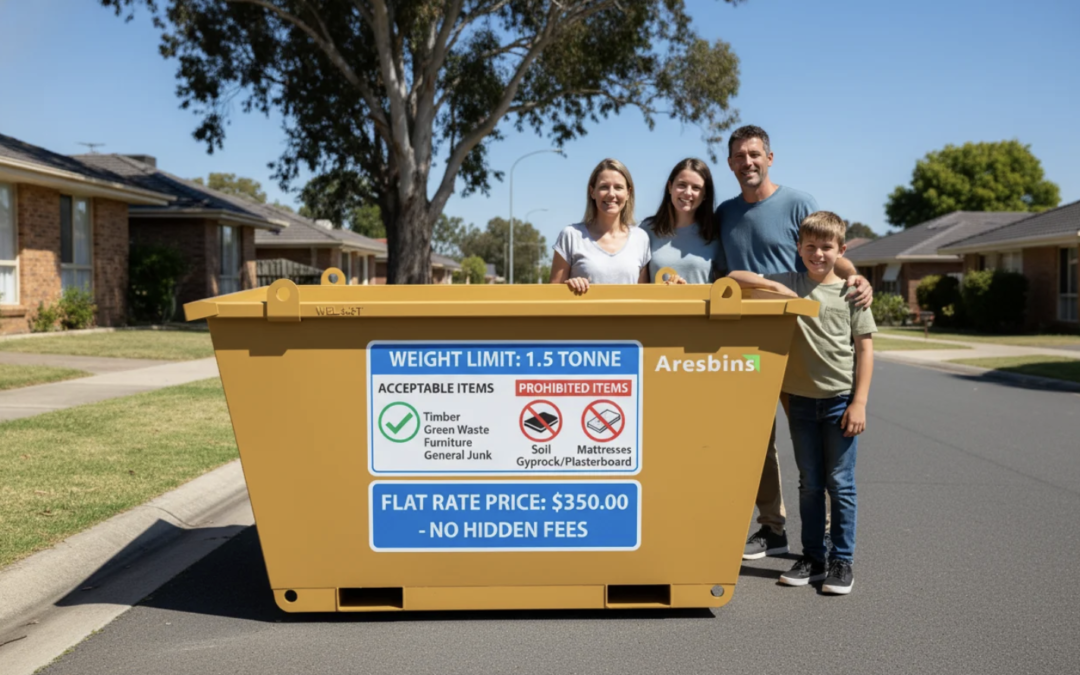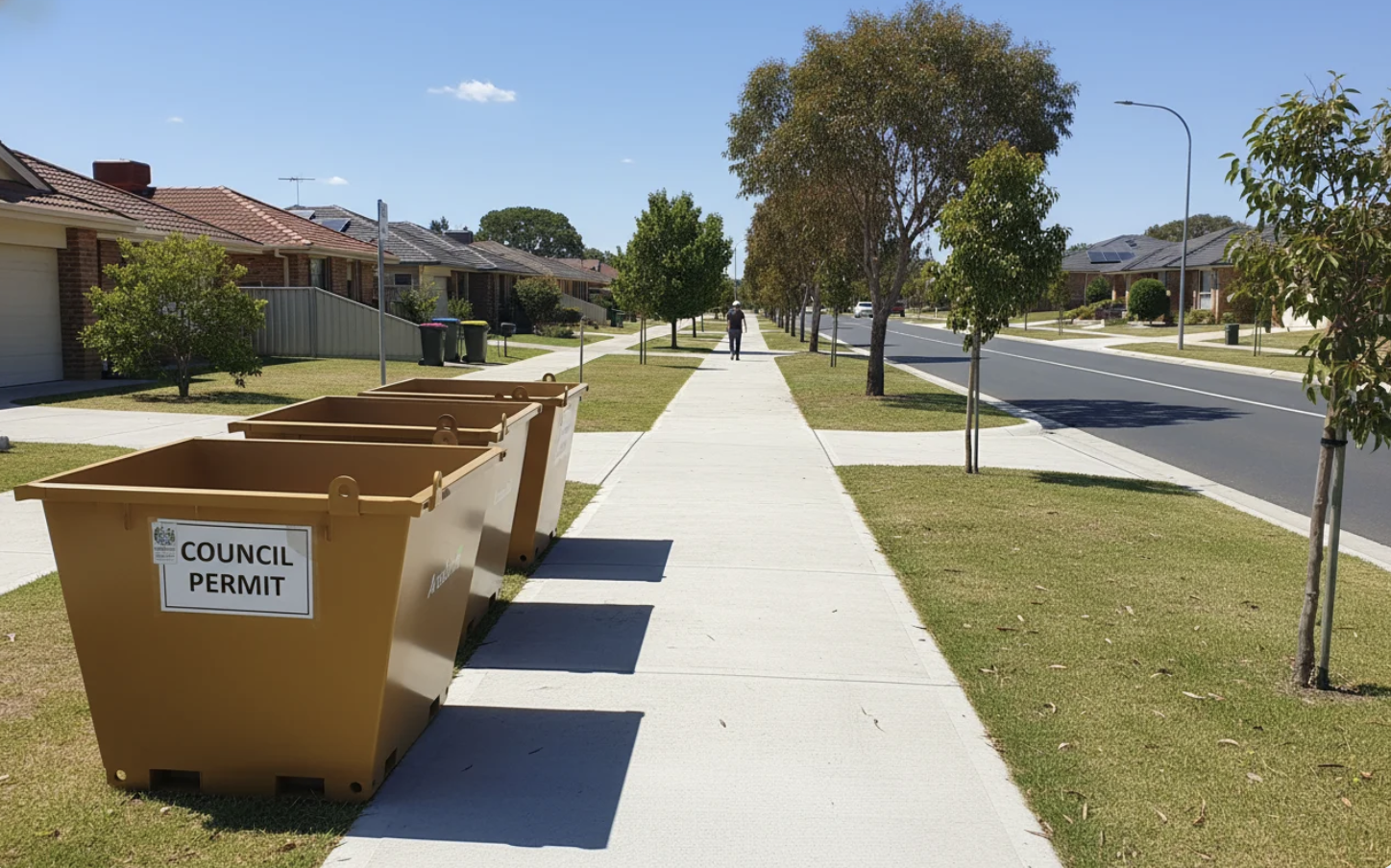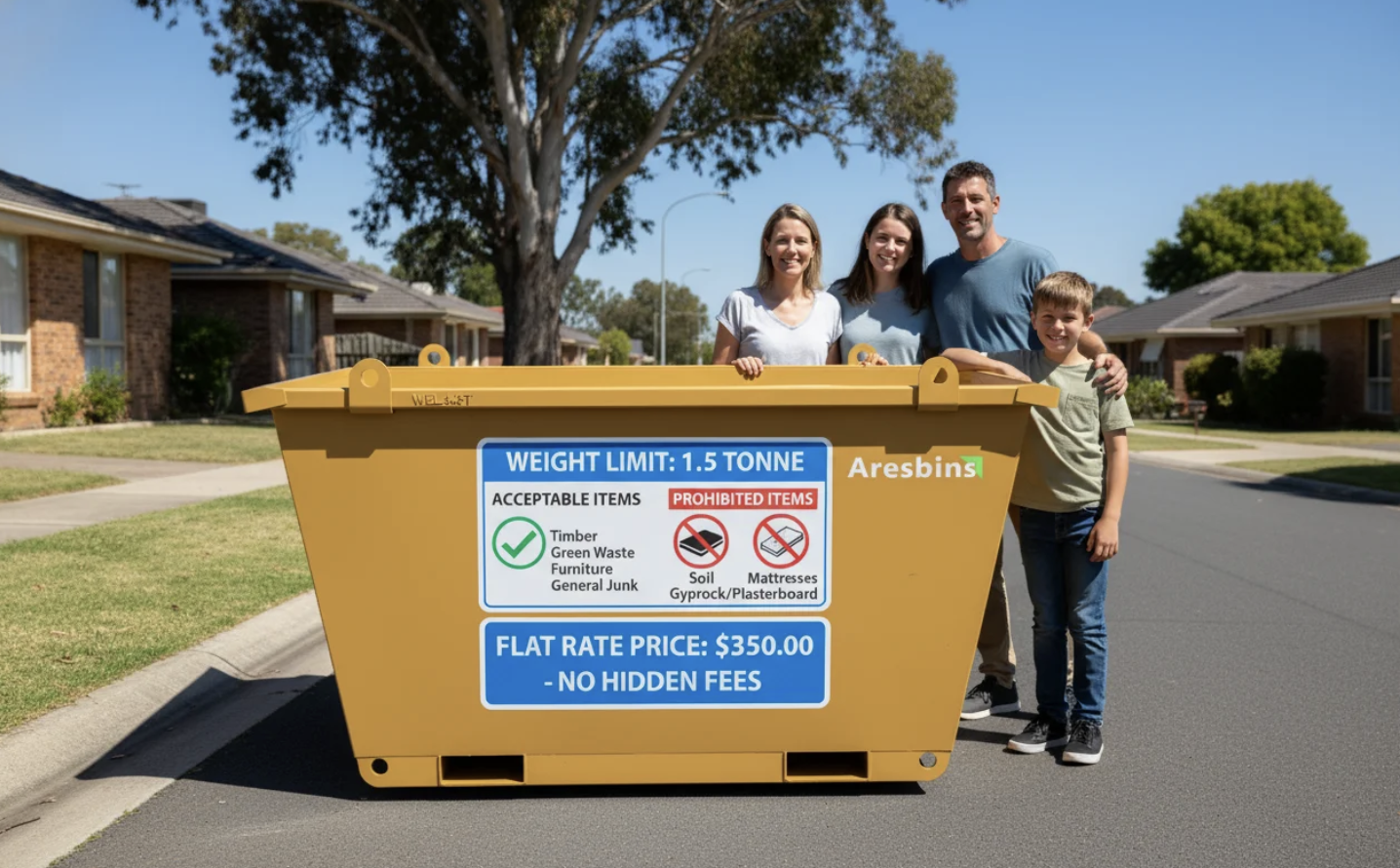1. Safe placement that doesn’t block people’s lives
Across Australia, councils treat skip bin placement as a safety issue, not just a convenience.
For example, Whitehorse City Council in Melbourne requires a permit for any skip bin placed on council land such as the road, footpath or nature strip, and sets conditions to protect pedestrian access and safety.
Residents don’t just want “a bin somewhere near the house”. They want bins that:
-
Don’t block driveways, prams or wheelchairs
-
Don’t take over the whole footpath
-
Are placed with the right council permit already sorted
If a bin blocks access or feels unsafe, the first reaction is often a complaint.
2. Close and convenient – not suddenly taken away
When bin or skip stations disappear, communities react fast.
In 2025, Toowoomba Regional Council decided to close six rural bin stations around Millmerran. Around 900 residents were affected and about 200 people suddenly found themselves more than 30 minutes from the nearest waste facility. The council expects to save about AU$125,000 a year, but locals are worried about more illegal dumping and feel a basic service has been taken away.
For residents, “good skip bin service” means:
-
Local drop-off options that are easy to reach
-
No surprise closures with no practical alternative
-
Cost savings that don’t simply shift the burden onto them
3. Clean, well-maintained bins
Many councils ask residents to report overflowing, damaged or smelly public bins and publish service standards for how often bins should be emptied or repaired.
From a resident’s perspective, the basics are simple:
-
Bins that don’t leak or smell
-
Doors, lids and hinges that actually work
-
Regular emptying so rubbish isn’t spilling out
No one thanks a company for a perfect bin, but they complain very quickly when a bin is broken or filthy.
4. Transparent pricing and simple rules
Skip bin guides and comparison sites across Australia warn customers about extra fees – overweight loads, overfilling above the rim, mixed waste, specific materials and council permit charges.
Residents are frustrated when:
-
A bin is advertised at a simple price, but the invoice later includes three or four extra line items
-
They only learn about “no soil”, “no mattresses” or “no plasterboard” after the bin is on site
-
The driver refuses pickup because the bin is overfilled, and a second trip fee is added
Clear weight limits, simple “can / cannot load” diagrams and upfront information on permit and special-waste costs are no longer optional – they are expected.
5. Protection from “freeloading” use
Household wheelie bins and large skips often become targets for “bin freeloaders” – people who quietly dump their rubbish into someone else’s bin.
A high-profile case in Sydney showed how sensitive this issue is: one shop owner was fined AU$45,000 after illegally dumping 25 pallets of expired food, and the local council reported more than 16,000 illegal dumping incidents in a year before launching its “Eyes On It” campaign.
For paying customers, a good service means:
-
Their bin space is not quietly stolen by others
-
Options like lids, mesh covers or lockable bars are available where needed
-
Operators are willing to advise on practical ways to deter freeloading
6. Real environmental impact – not more dumping
Illegal dumping is a major environmental and budget issue for councils.
Shoalhaven City Council, for example, has seen illegal dumping on public and council land increase by about 60% since 2023 and spent more than AU$208,000 removing around 450 tonnes of dumped waste in two years. The NSW EPA has provided about AU$76,000–80,000 in funding for education, signage, bollards and CCTV to tackle the problem.
Residents don’t just want “a cheap skip”. They want:
-
Services that genuinely reduce dumping, not shift it into bushland and side streets
-
Clear sorting options (clean hardfill, green waste, mixed waste, etc.)
-
Visible enforcement against blatant dumpers
When people see councils investing in cameras and clean-ups, they expect skip bin companies to be part of the solution.
7. Clear communication and consultation
The Millmerran case also shows how much communication matters. Residents expressed anger on social media, launched petitions and warned of more dumping and even backyard burning. The mayor later admitted that council “could do a better job communicating any changes”.
For residents, a good skip bin service is one where:
-
Changes to locations, opening hours or prices are explained in advance
-
Reasons are clear – safety, cost, environmental targets – not vague
-
People feel their feedback is heard before decisions become final
8. How Aresbins helps operators meet these expectations
All of these complaints point to one thing:
Residents don’t only care about the price of a skip – they care about how it fits into their street, their routine and their environment.
For skip bin hire companies, that means choosing bins and partners that make it easier to deliver:
-
Safe, tidy placement – with robust lifting points, stable footprints and options for lids or mesh covers so bins can sit on the street without causing hazards.
-
Clean, durable equipment – thicker floors, reinforced corners and better coatings so bins last longer, leak less and look better between repaints.
-
Configurable designs – options for doors, lockable bars, partitions and signage to support clearer rules and protect paying customers’ bin space.
-
Efficient logistics – stackable and nestable bins that maximise truck and container loads, helping operators control costs even as disposal and labour rise.
Aresbins is a China-based manufacturer focused on Australian-style skip, hooklift, frontlift and crane bins. By manufacturing in China – one of the world’s largest export hubs – and using automated cutting and welding, Aresbins can usually offer export-competitive pricing while meeting Australian geometry and durability expectations.
For small and mid-size operators, that means:
-
Getting better-built bins for each dollar invested
-
Upgrading fleets with designs that reduce damage, downtime and complaints
-
Having the flexibility to match local council rules and customer expectations
In a market where residents demand safer streets, cleaner suburbs and real environmental action, the right bins and the right supplier become a strategic advantage – not just a purchase line on a spreadsheet.




Recent Comments